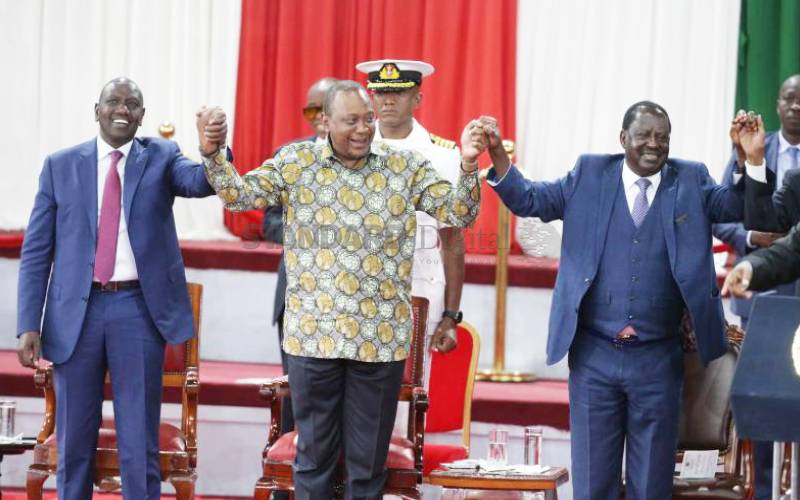×
The Standard e-Paper
Home To Bold Columnists

President Uhuru Kenyatta (C) his deputy William Ruto (L) and Former Prime Minister Raila Odinga during the launch of the Building Bridges Initiative report at Bomas of Kenya in Nairobi on November 27, 2019. [Stafford Ondego]
A stranger following Kenyan politics would be forgiven for thinking that the country can only accommodate two political parties with no room for a third.